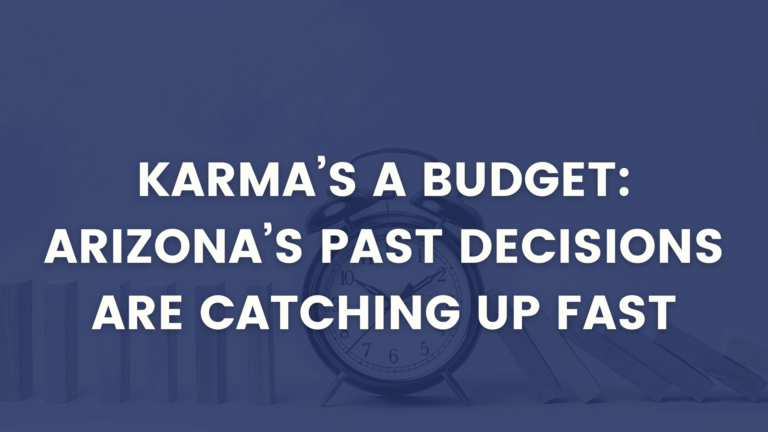
Our chance to invest in a People First Economy for Arizona
Abundance and bounty are not words typically associated with a state known for its harsh desert landscape. But when it comes to Arizona’s public resources—for once—there is plenty.
According to the Joint Legislative Budget Committee, Arizona’s revenues continue to beat earlier estimates, with balances forecasted to exceed $1 billion over the next three years. Heeding Arizonans’ call for robust economic relief, over $12 billion in one-time federal funds will soon arrive from DC. And, if negotiations on infrastructure and jobs legislation are successful, billions more could flow into our state’s economy in the coming years.
Not in recent memory have our state’s elected leaders wielded such a windfall of resources. This year, legislators will not be reaching for the scissors to make damaging (yet familiar) cuts to public programs, but instead have the chance to respond to community needs and turn on faucets for unprecedented economic relief and investment. Arizonans have given state leaders the opportunity to jumpstart a robust, equitable recovery as we emerge from this pandemic and recession—and it’s time for them to see this through.
In this moment, we can build a people first economy for Arizona—where we support all working people and people struggling in the job market, where all children can reach their full potential and are protected from hardship and poverty, and where everyone has health coverage and can get the care they need without fear of financial ruin. And this will happen if there’s money flowing directly into communities and to people so they can spend in our local businesses.
Lessons learned: State budget cuts and the lack of resources extended the Great Recession for many states. And those that cut taxes received no evident economic benefit compared to neighboring states that did not cut taxes or even increased them; in a large share of cases, they fared worse.
We can use our surplus to correct for racial and economic inequities that have long plagued our state and invest in the human and physical foundations that will provide a lasting public benefit. Indeed, recent polling suggests the vast majority of Arizonans agree on these priorities—like broadband access, affordable housing, public education, and comprehensive healthcare.
Take school facilities as one example. For years, Arizona has underfunded the renewal of its school facilities—to the tune of less than one-tenth of what previous formulas required. This has forced districts to raise property taxes, increasing the advantage for schools in affluent areas. Investments like school facilities can create a long-term, equitable boost to our economy by creating jobs and equipping learning environments for Arizona’s future.
Like school facilities, many of these priorities have not changed in recent years—but Arizonans are ready for a new approach to accomplishing them. For too long and especially during the pandemic, low-wage working people, families with children, immigrants, and people of color have been ignored while the bulk of state-funded investments have gone elsewhere.
In this remarkable moment, we have a choice. Instead of continuing to cater to those at the top, we can seize this historic opportunity to make bold commitments to the things that will help every household in Arizona thrive.



